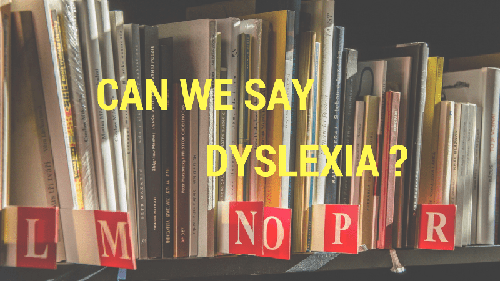Can we say “dyslexia”?
Written by Preet Mankad
Published on April 3, 2017
Dyslexia? “Oh no no. We don’t say that.”
In Part 4 of her Unlocking Dyslexia series on NPR’s All Things Considered, Gabrielle Emanuel explored the issues that public schools have with the term “dyslexia”.
 Emmanuel quotes an English teacher recalling an administrator explaining that they are not allowed to use the term because, “….we don’t have the capabilities to support that particular learning difference.”
Emmanuel quotes an English teacher recalling an administrator explaining that they are not allowed to use the term because, “….we don’t have the capabilities to support that particular learning difference.”
Over the last several decades, language scientists have developed clear and specific procedures for identifying dyslexia and differentiating it from other types of learning problems. Educators are typically not trained to diagnose or treat dyslexia, but parents don’t understand this. If educators do use the term dyslexia in discussing a child’s reading and/or spelling difficulties, parents understandably assume that means the child will be getting an instructional program designed to address it.
The federal special education law does require public schools to provide qualified disabled readers and writers with an Individual Education Plan (IEP). But the specific services provided under an IEP are decided by the local school district. Most public school interventions are provided in group settings and, often, using methods that do not address dyslexia’s core deficits.
Odd as it seems, clarity about the nature of a child’s reading, spelling and writing difficulties is often left up to parents. This is why Lexercise partners with parents to provide intervention matched to the child’s specific reading, spelling and/or writing difficulties.
Click here to learn more about our therapists and how Lexercise partners with parents!
Improve Your Child’s Reading
Learn more about Lexercise today.
Schedule a FREE
15-minute consultation


